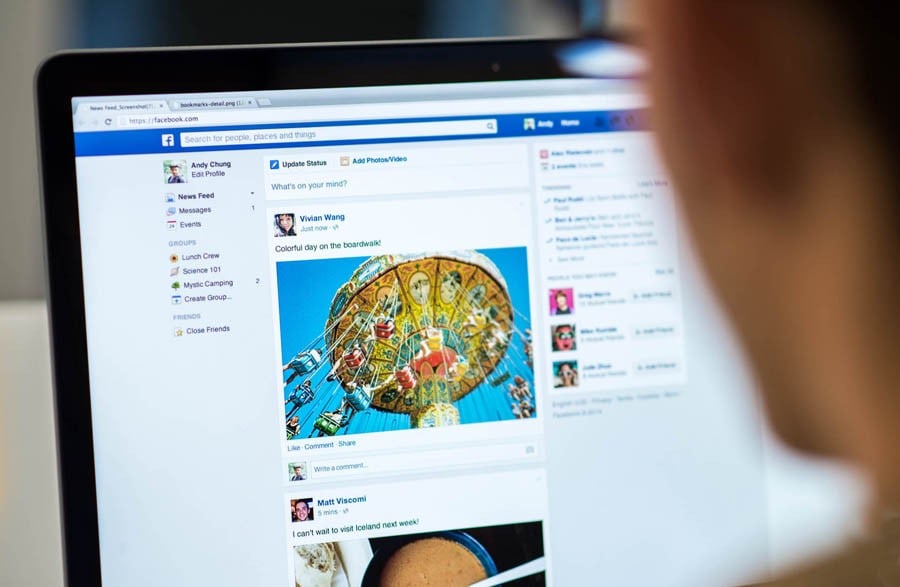
Online interactions between Indians and Pakistanis can work both ways

Aunties having a fan moment over Fawad Khan, a cordial conversation on Nusrat Fateh Ali Khan being the king of Qawali and unhindered hatred for the other on cricket memes. These are just some of the interactions you’ll find taking place between Indians and Pakistanis on various social media platforms.
Access to better internet has opened up opportunities for people to not only access content being produced from the other side but also have conversations over this. On this side of Wagah, i.e., Pakistan, most of us have grown up exposed to Bollywood movies and the infamous soap operas.
When Shahrukh Khan chose Tina over Anjali in Kuch Kuch Hota hai, all our hearts broke a little. When Ranbir Kapoor and Deepika Padukone broke up, it was big news in Pakistan and we are all guilty of ogling at pictures of Mahira Khan and Ranbir Kapoor chilling in New York. But this access has quadrupled over the past decade moving beyond movies, soaps and celebrities produced by big production houses.
I can go to YouTube and stumble upon the page of a lesser known singer, not part of the mainstream, crooning my favourite Punjabi tunes.
Bollywood is no longer my only source material on how Indians act. There is a whole host of comedians, vloggers and singers amongst others to choose from and decide what an Indian looks like breaking the stereotype.
This is true for the other side too, as various interactions in comment sections show. Two comedians who go by the name Jizzy-Veerji are part of a YouTube channel called, The Screen Patti and became famous in Pakistan after mocking the Pakistan cricket team in their infamous ‘Mauka Mauka’ video earlier this year for the Champions Trophy between India and Pakistan. The unabashed vitriol directed at them was funny to them though.
Read also: Constituency for peace
"We’re comedians, so it’s our job to take jokes. We wanted to insult them in a fun way," says Jasmeet Singh Bhatia, one of the comedians. They had not expected the video to get this much attention in Pakistan, he says. This was also their first interaction with Pakistanis.
"We’ve seen the work of Pakistani comedians online and we know that people there are smart people who have a similar sense of humour," he says, sniggering about the incident. He quickly relays the name of some of the Pakistani comedians that he follows. "Some of them also responded to the video we made," he says.
The recurring joke in their videos is that Pakistanis have poor English skills and the country is so backward that the internet barely functions. "We know this is not true," he clarifies. "Obviously we get the comments on our video so we know the internet works," he laughs.
To make light of the whole situation, they made another video ridiculing themselves and reading out some of the comments they had gotten on their video.
They also made a video this year, releasing it on August 14th, pointing to the British as the common culprit for both India and Pakistan. The video shows their desire to promote peace between the two countries.
Though the concern here is that how does this exchange, which so quickly descends into hate speech and outright hatred for the other, impact the average person for whom this might be the only interaction with someone from across the border.
Fahad Farooq, a 31-year-old inventory accountant in Saudi Arabia, says he first started speaking to people in India when Orkut, the archaic social media website before Facebook, became popular. He also often steps in on Facebook to stop the hate. "You know it’s really about one person saying something positive and then the rest follow," he describes some of his interactions online. "We’re programmed to hate each other since we were children. The interaction on social media is only through particular posts on Facebook or content posted online."
Farooq wants peace between the countries. Now living in Saudi Arabia, he works with Indians as well and says he does not support war between India and Pakistan. "The physical distance in interacting via social media platforms often gives people the comfort level to say things they normally would not say offline. This includes saying both negative and positive things," says Irfan Chaudhry, who is a hate crime researcher based in Canada and has done extensive work mapping and understanding hate speech on Twitter.
Sometimes though there aren’t people like Farooq who can step in and put out that one positive comment that can rally more people. What happens then? As we curse and degrade the other side, do we really believe that that is all they are?
He says these online interactions can work both ways, especially for a younger generation that is more tech savvy. "It might break down barriers and generate more positive interactions," he says, adding it can also go the other way, "if the groups in conversation with each other identify strongly on nationalistic boundaries, where the online space is just another area where users from both nationalities can further convey their dislike for each other."